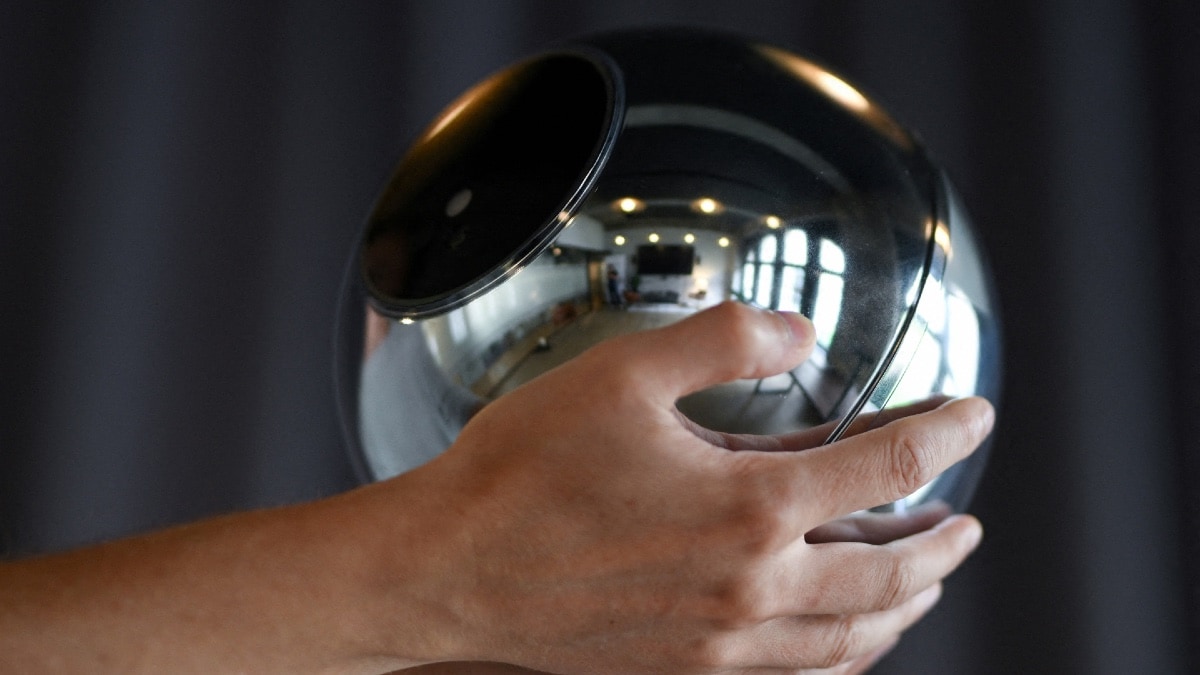Worldcoin will expand its operations to sign up more users globally and aims to allow other organisations to use its iris-scanning and identity-verifying technology, a senior manager for the company behind the project told Reuters.
Co-founded by OpenAI CEO Sam Altman, Worldcoin launched last week, requiring users to give their iris scans in exchange for a digital ID and, in some countries, free cryptocurrency as part of plans to create a “identity and financial network”.
In sign-up sites around the world, people have been getting their faces scanned by a shiny spherical “orb”, shrugging off privacy campaigners’ concerns that the biometric data could be misused. Worldcoin says 2.2 million have signed up, mostly during a trial period over the last two years. Data watchdogs in Britain, France and Germany have said they are looking into the project.
“We are on this mission of building the biggest financial and identity community that we can,” said Ricardo Macieira, general manager for Europe at Tools For Humanity, the San Francisco and Berlin-based company behind the project.
Worldcoin raised $115 million (nearly Rs. 95,150 crore) from venture capital investors including Blockchain Capital, a16z crypto, Bain Capital Crypto and Distributed Global in a funding round in May.
Macieira said Worldcoin would continue rolling out operations in Europe, Latin America, Africa and “all the parts of the world that will accept us.”
Worldcoin’s website mentions various possible applications, including distinguishing humans from artificial intelligence, enabling “global democratic processes” and showing a “potential path” to universal basic income, although these outcomes are not guaranteed.
Most people interviewed by Reuters at sign-up sites in Britain, India and Japan last week said they were joining in order to receive the 25 free Worldcoin tokens the company says verified users can claim.
“I don’t think we are going to be the ones generating universal basic income. If we can do the infrastructure that allows for governments or other entities to do so we would be very happy,” Macieira said.
Companies could pay Worldcoin to use its digital identity system, for example if a coffee shop wants to give everyone one free coffee, then Worldcoin’s technology could be used to ensure that people do not claim more than one coffee without the shop needing to gather personal data, Macieira said.
“The idea is that as we build this infrastructure and that we allow other third parties to use the technology.”
In future, the technology behind the iris-scanning orb will be open-source, Macieira added.
“The idea is that anyone can in the future build their own orb and use it to benefit the community that it’s aiming for,” he said.
Privacy concerns
Regulators and privacy campaigners have raised concerns about Worldcoin’s data collection, including whether users are giving informed consent and whether one company should be responsible for handling the data.
Worldcoin’s website says the project is “completely private” and that the biometric data is either deleted or users can opt to have it stored in encrypted form.
The Bavarian State Office for Data Protection Supervision, which has jurisdiction in the European Union because Tools For Humanity has an office there, said it started investigating Worldcoin in November 2022 because of concerns about its large-scale processing of sensitive data.
Michael Will, president of the Bavarian regulator, said it would look into whether Worldcoin’s system is “safe and stable”.
The project “requires very, very ambitious security measures and lots of explanations and transparency to ensure that data protection requirements are not neglected,” Will said.
Will said people who hand over their data need “absolute clarity” about how and why it is processed.
Rainer Rehak, a researcher on AI and society at the Weizenbaum Institute in Berlin said that Worldcoin’s use of technology is “irresponsible” and that it is not clear what problems it would solve.
“The bottom line is it’s a big project to create a new consumer base for Web3 and crypto products,” he said. Web3 is a term for a hypothetical next phase of the internet, based around blockchain, in which users’ assets and data exist as tradable crypto assets.
Addressing privacy concerns, the Worldcoin Foundation, a Cayman Islands-based entity, said in a statement that it complies with all laws governing personal data and will continue to cooperate with governing bodies’ requests for information about its privacy and data protection practices.
© Thomson Reuters 2023
Check out our Latest News and Follow us at Facebook
Original Source

